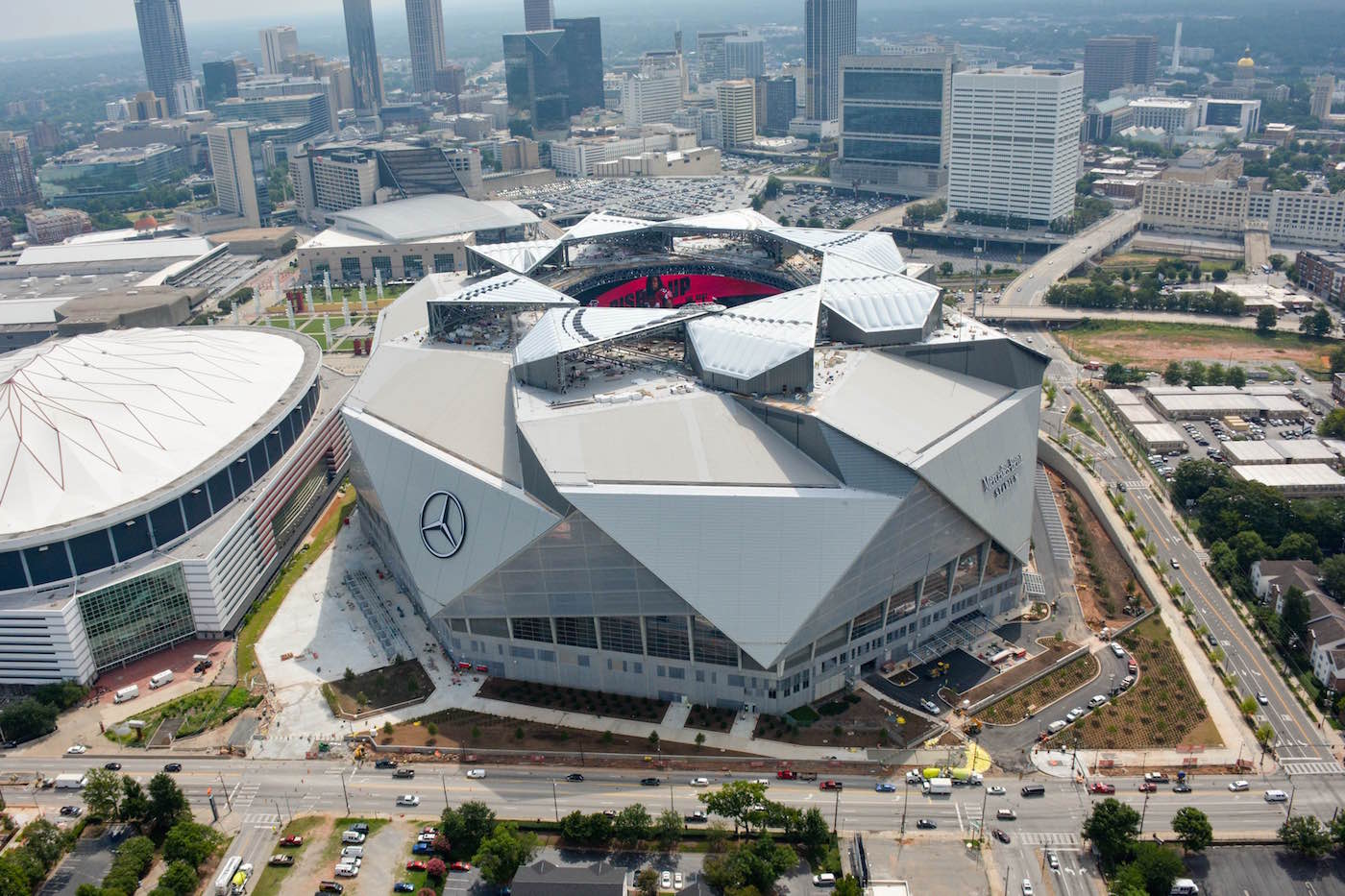
Atlanta's Mercedes-Benz Stadium receives the first Platinum LEED sustainability certificate
The Mercedes-Benz Stadium in Atlanta, USA has become the first professional sports stadium to receive a platinum ‘LEED’ certification after incorporating impressive sustainability features into the venue’s design.
The Leadership in Energy & Environmental Design (LEED) certificate is a global standard for measuring the sustainability of buildings and comes at four levels: certified, silver, gold, and platinum.
The owners of Mercedes-Benz Stadium, which was inaugurated this August, aimed to achieve the highest certificate and spent almost $1.6 billion to ensure optimal environmental performance.
Arthur Blank, Owner, and Chairman of the Atlanta Falcons and Atlanta United said: “We were trying to build a stadium that reflects all of our values. We can do this in a way that is not only beautiful to the eye but beautiful to the environment as well”.
He added: “We set out to build a venue that would not only exceed expectations but also push the limits of what was possible in terms of stadium design, fan experience and sustainability”.
“We have a powerful new platform to showcase to the industry and to our fans that building sustainably and responsibly is possible for a venue of any type, size and scale”.
The stadium’s performance accumulated 88 credits, the highest ranking of any sports facility in the world, according to its owners.
Efficiency measures, such as LED lighting and LED video boards which reduce energy usage by up to 60 percent and the operation of 4,000 solar PV panels have reduced energy consumption by 29 percent in relation to average stadium standards.
Due to water-efficient fixtures and conservation infrastructure, the Mercedes-Benz Stadium uses 47 percent less water than baseline standards for stadiums.
In addition, the stadium has a stormwater management system with the capacity to store over 2 million gallons on site, which prevents flooding in the surrounding areas.
Through the design of the premises, alternative and low-carbon transportation is significantly encouraged.
The stadium offers a bicycle valet program on event days, new pedestrian-friendly walking paths that allow connectivity between communities and public electric vehicle charging stations which can charge up to 48 electric cars simultaneously.
“It’s the right thing to do, and we believe that most things we do, we do them for the right reasons; most of the time the economics make sense, but sometimes they don’t. You just do it because it’s right”.